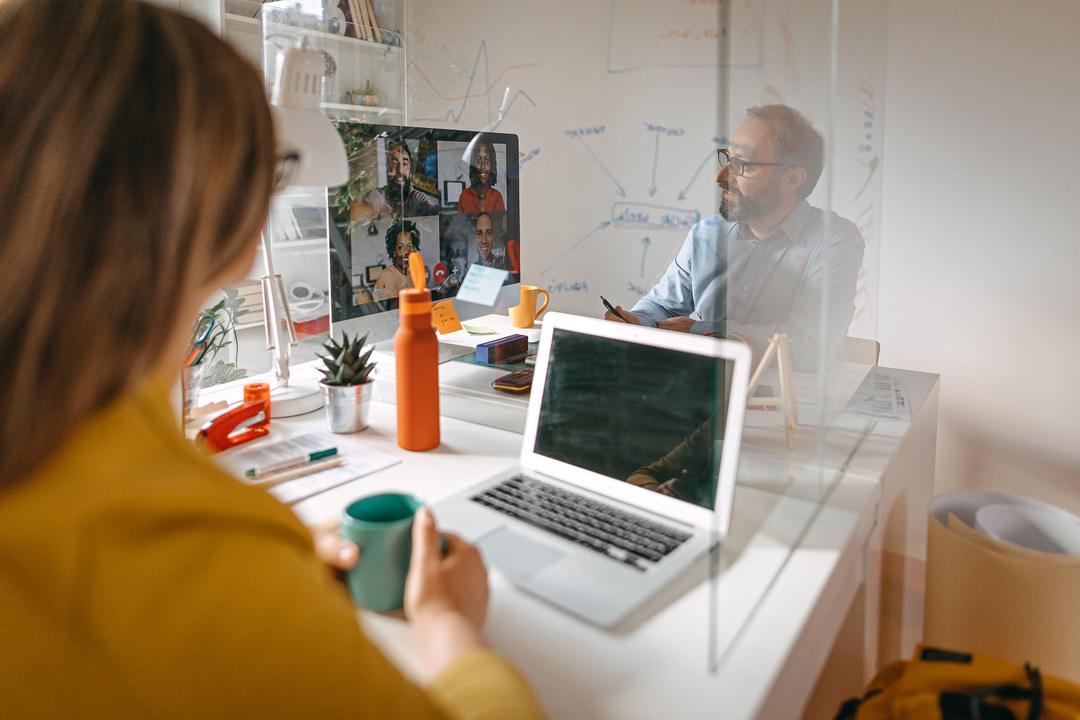Many employees are still feeling emotionally fragile as a result of the ongoing COVID-19 pandemic. Embedding supportive conversations with trained colleagues as part of a company’s wellbeing strategy can make all the difference.
There are changes afoot as we enter a new phase of the ongoing pandemic – one where vaccinations roll out, lateral flow tests are the norm, and companies begin cautiously reboarding people back into communal workspaces. For some employees, this heralds the start of an exciting new era, full of optimism and hope that some sort of normality is returning. For others, the changes are harder to deal with, sparking additional anxieties when they have already been struggling and putting pressure on those who find themselves continuing to care for their loved ones due to the pandemic.
We knew, even before COVID-19, that the state of mental health in the UK was fragile – as many as 1 in 4 people in England experience a mental health problem of some kind each year1. Coronavirus has added another layer to this, with a shocking 74% of people feeling so stressed they felt overwhelmed or unable to cope2.
So, how can businesses address this new set of challenges in a way that supports people individually, as and when they need it?
The answer may just lie in Mental Health First Aid (MHFA).
A vital driver for change
Managing mental wellbeing at work is a complex process and it’s a must to help people feel fulfilled and productive. But it can be negatively affected by a whole host of external factors including physical health, being overtired, dealing with change, bereavement or trauma, personal financial situations and even a family history of mental health issues.
We know that mental health support often falls on the shoulders of line managers in organisations. And we also know that this isn’t a perfect system. Line managers are under considerable pressure in the current climate, and they could be experiencing many of the same concerns as those people they manage. What’s more, many don’t have the training they need to deal with these types of issues.
A Mental Health First Aid programme can change that, by creating a group of trained employees who understand, and can identify, diverse mental health issues. A Mental Health First Aid course will coach employees on how to spot the early signs of mental ill health in their colleagues, how to listen non-judgmentally and how to respond appropriately. In this way, first aiders can immediately assist someone who is feeling just a little bit down, as well as signpost those who need it to professional sources of help like a GP, Employee Assistance Programme or counselling services.
Embedding support
At Simplyhealth, we have a group of more than 30 Mental Health First Aiders, who represent a range of different levels of seniority and come from across the business. They are our first line of defence when it comes to initial peer-to-peer support and are well-versed in flagging up further professional care pathways when the situation demands.
We make it as easy as possible for our colleagues to identify who is in this group by using simple strategies, such as publishing the MHFA’s names and photos on our intranet, sharing their contact details on screen savers, and including the MHFA badge in email signatures. In addition, we operate a central email address that is regularly monitored which allows us to put colleagues directly in touch with one of our MHFA. The Mental Health First Aiders also run an online ‘coffee and chat’ session every Wednesday morning, where everyone is welcome to share their stories, seek advice (either for themselves or someone they know), or just have a general chat.
Our experience has been that this is an effective and worthwhile addition to our comprehensive internal wellbeing strategy. Our colleagues report that having a friendly and familiar face to turn to in the workplace can help to provide a comforting first step in reaching out for support. And we’re not alone. Over the last three years, there’s been a steady increase in the number of employers who provide MHFA training for their employees – rising from 19% in 2018, to 47% in 2020, and now 56% in 20213.
The bigger picture
As a health solutions provider, you might expect that employee wellbeing has been top of our mind for quite some time – and you’d be right. However, putting in comprehensive employee wellbeing programmes is becoming much more commonplace across diverse industries and sectors now. In fact, in many ways, the increase in focus on holistic wellbeing from businesses for their employees has been a silver lining of the pandemic.
As evidence, the recent CIPD/Simplyhealth Health & Well-being at Work 2021 report revealed 75% of respondents believe senior leaders have employee wellbeing on their agenda, a rise of 23% over the past year. Additionally, over half of organisations have increased employee wellbeing support or benefits in response to the pandemic, which is encouraging news.
But budgets are tight. At a time when some employees are already teetering on exhaustion and burn out, and even the most resilient of people have found their stoicism and grit sorely tested, solutions have to work hard and across a wide spectrum of need. We’ve found Mental Health First Aid fits the bill, by keeping people feeling connected when working remotely and, importantly, normalising the conversation around mental wellbeing at work.
References:
1 Mental Health Foundation. Stress: Are we coping? Research Report. London, UK; 2018 https://www.mentalhealth.org.uk/publications/stress-are-we-coping [Accessed: 22 April 2021].
2 McManus, S., Meltzer, H., Brugha, T. S., Bebbington, P. E., & Jenkins, R. (2009). Adult psychiatric morbidity in England, 2007: results of a household survey.
3 CIPD/Simplyhealth Health & Well-being at Work 2021 report









